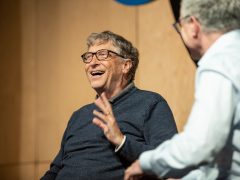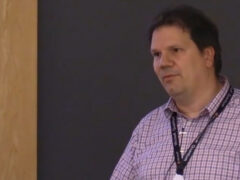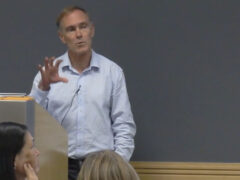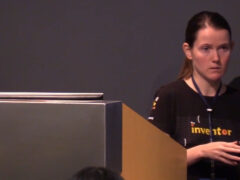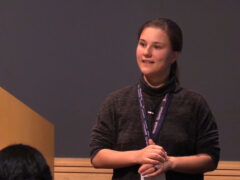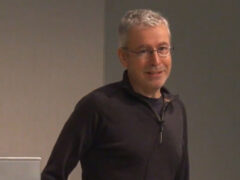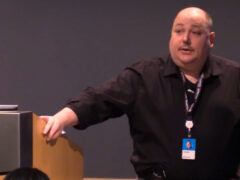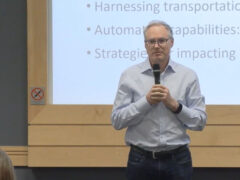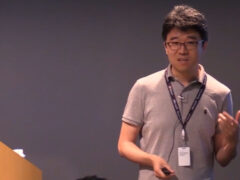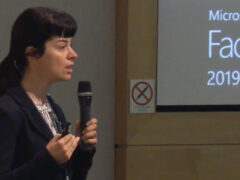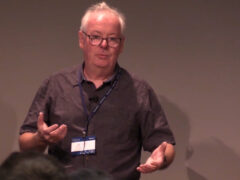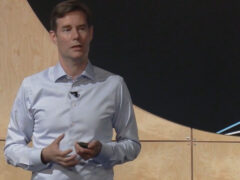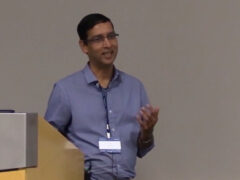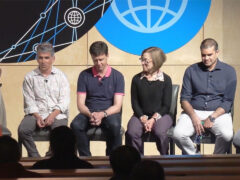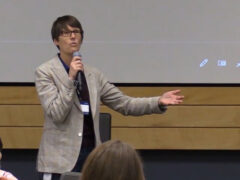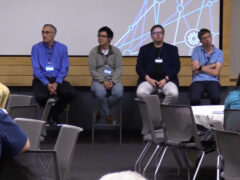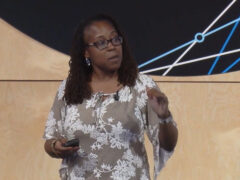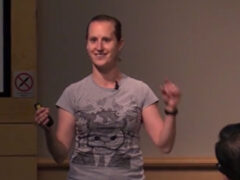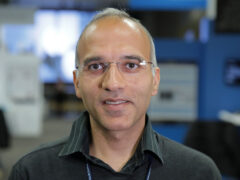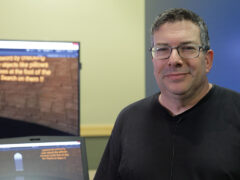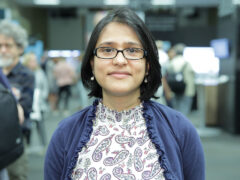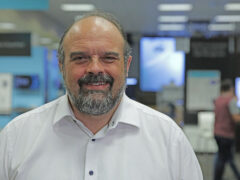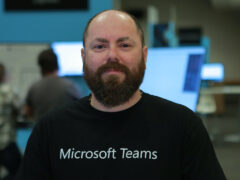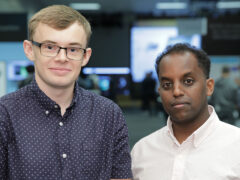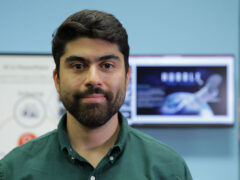Computing for Global Development and Resource Constraint
- Aaditeshwar Seth, Andrew Cross, and Ed Cutrell | Microsoft Research, Indian Institute of Technology, Delhi
As the cost of information technology falls and the reach of communication systems grows ever more pervasive, hundreds of millions of people are being exposed to computing technologies for the very first time. This gives rise to the question: can all this technology be used to help people in the world’s poorest regions improve their lives? What can computing technology do for the unique context of a wage laborer in India, a farmer in Tanzania, or a child in a Sao Paulo favela? This session will focus on some of the ways that research in IT and computing can contribute to the well-being of people in communities under severe resource constraint in terms of finances, language, education, infrastructure (power, Internet access) and availability of devices. Our speakers will describe innovations in networking, health-care administration, and media sharing for communities in challenging contexts in the global south. We hope to engage the audience in a dialog on the challenges and unique rewards of computing research in these areas.
Speaker Details
Ed Cutrell manages the Technology for Emerging Markets (TEM) group at Microsoft Research India. TEM is a multidisciplinary group that strives to study, design, build, and evaluate technologies and systems that are useful for people living in underserved rural and urban communities. The goal of this work is to understand how people in the world’s poor and developing communities interact with information technologies and to invent new ways for technology to meet their needs and aspirations. Ed has been working in the field of human-computer interaction (HCI) since 2000; he is trained in cognitive neuropsychology, with a PhD from the University of Oregon.
Andrew Cross is a Research Program Manager in the Technology for Emerging Markets group at the Microsoft Research lab in Bangalore. His research and project focus, spanning work in Latin America, Africa, and for the past 3.5 years India, is on developing low-cost technology-based solutions that enhance and empower human efforts to deliver quality healthcare and education. His role at Microsoft Research is piloting novel research ideas in the field, and scaling up successful trials as broader deployments often in collaboration with universities, hospitals, NGOs, and government organizations. His current work overlaps several fields including human-computer interaction (HCI), education, health, and development. His education includes a BS in Computer Engineering and Plan II Honors at the University of Texas at Austin, and MPhil in Engineering for Sustainable Development at the University of Cambridge.
Aaditeshwar Seth is an assistant professor in the Department of Computer Science at IIT Delhi, where he runs the ACT4D (Appropriate Computing Technologies for Development) research group. He graduated with a PhD degree from the University of Waterloo in Canada in 2008, and completed his B.Tech from IIT Kanpur in 2002. Aaditeshwar is passionate about building technologies for social development. He won the Knight News Challenge award in 2008 to start an organization, Gram Vaani, which builds low-cost voice-based systems for community media in rural areas. Gram Vaani’s technologies and work done by Aadi’s students are now in use by over 100 developmental organizations in India, Africa, Afghanistan, and Pakistan, where collectively more than 2 million people have directly touched their platforms. Several elements of their work have also been adopted by government departments in India for scaleup, and have influenced the use of ICTs for development within many international aid and development organizations.
-
-
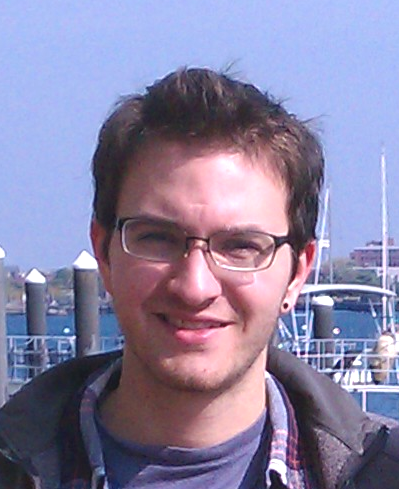
Andrew Cross
Research Program Manager
-
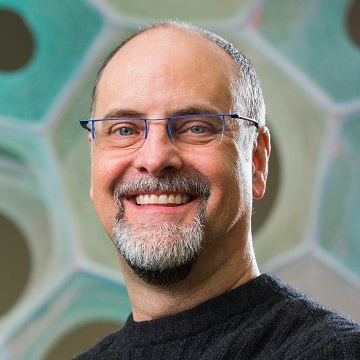
Ed Cutrell
Sr. Principal Research Manager
-
Jeff Running
-
Series: Microsoft Research Faculty Summit
-
-
-
Cars, Computing and the Future of Work: Specific topics of mutual interest
- Linda Boyle,
- Ed Doran,
- John Lee
-
-
-
Crowd, Cloud and the Future of Work: Updates from human AI computation
- Pietro Michelucci,
- Lucy Fortson,
- Franco Pestilli
-
-
Cars, Computing and the Future of Work: A UW & MSR Workshop: Welcome and Overview of Projects
- Linda Boyle,
- Ed Doran,
- Eric Horvitz
-
-
Crowd, Cloud and the Future of Work: Welcome and Updates
- Besmira Nushi,
- Ece Kamar,
- Kori Inkpen
-
Empowering People to Achieve More: How Useful a Concept is Productivity?
- Brendan Murphy,
- Yvonne Rogers,
- Steve Whittaker
-
Keynote - The Future of Work And the Power of Data
- Johannes Gehrke
-
Productivity in Software Development
- Neel Sundaresan,
- Margaret-Anne Storey,
- Prem Kumar Devanbu
-
Artificial Emotional Intelligence, Social Systems, and the Future of Collaboration
- Mary Czerwinski,
- Mark Ackerman,
- Gloria Mark
-
Workers of the World, Connect! Tech Innovations and Organizational Change for the Future of Work(ers)
- Mary Gray,
- Jamie Woodcock,
- Louise Hickman
-
Increasing AI Programmer Productivity
- Markus Weimer,
- Sarah Bird,
- Ce Zhang
-
Human-AI Collaboration for Decision-Making
- Besmira Nushi,
- Ayanna Howard,
- Jon Kleinberg
-
Future of Spreadsheeting
- Ben Zorn,
- Felienne Hermans,
- Daniel Barowy
-
Program Synthesis meets Notebooks
- Sumit Gulwani
-
Accessible Virtual Reality
- Eyal Ofek
-
Calendar.help: A Virtual Meeting Scheduling Assistant
- Pamela Bhattacharya
-
Visual Studio IntelliCode
- Mark Wilson-Thomas
-
Microsoft Teams: Collaborate with Any Researcher Anywhere
- Jethro Seghers
-
Project Alava: Programming Webs of Microcontrollers
- James Devine,
- Teddy Seyed
-
AI in PowerPoint
- Kostas Seleskerov

